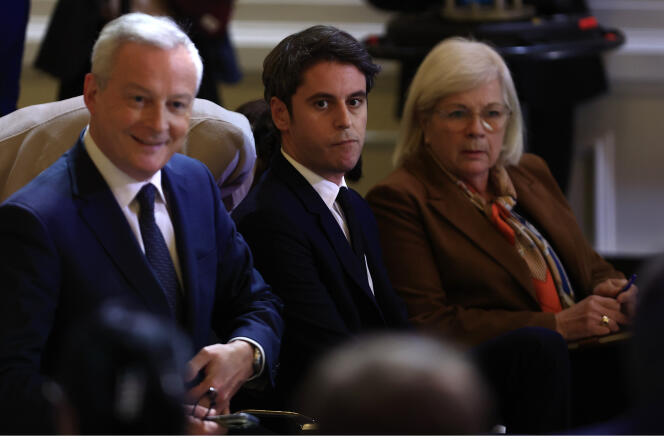


"The France of common sense rather than the France of hassle": It was with this line that Macron summed up on Tuesday, January 16, his determination to make simplifying the daily lives of business heads a priority once again, to "further liberate those who do, who innovate, who dare."
"There is still too much complexity discouraging entrepreneurs, industrialists, shopkeepers, farmers, craftsmen (...) And we can no longer afford it. That's why I'm asking the government to abolish norms, reduce delays, make it even easier to hire people and raise all the thresholds that trigger requirements," declared the president.
He called for an "Act II of a law for growth, activity and economic opportunity," referring to a law passed in 2015 when he was economy minister. Better known as the "Macron Law," it had notably enabled the creation of intercity bus routes across France, dubbed "Macron buses," facilitated Sunday work and night shifts, and opened up regulated professions such as notaries.
But what change will Macron's policy bring this time? In November 2023, the Finance and Economy Ministry launched a major consultation of business leaders on the subject, looking to draft a bill "before the summer." The bill, nicknamed "Macron 2" and set to be presented in March, should serve as the basis for this move toward simplification, said sources at the Ministry and the Elysée Palace. The aim is to identify the little "hassles" of everyday life, to use Macron's word, such as unintelligible administrative documents or complex regulations, rather than a far-reaching reform.
The liberation of "economic opportunities" can only be achieved because "more French people will be working," explained Macron. He repeated the goal of a full employment rate, which would reduce unemployment to around 5%, compared with 7.4% currently.
Macron pledged new steps to add to the labor market reform he conducted when he came to power in 2017. Without going into detail, he assured that the project would be launched as early as spring. "The government will encourage the creation and resumption of employment," he said, adding that unemployment compensation rules would be "stricter when job offers are refused." This tougher approach, however, would go hand in hand with "better support for the unemployed through training and conversion classes."
Former labor minister Olivier Dussopt had already defended the idea of a second part to the "Macron Law" on December 15, 2023, in the newspaper Les Echos. It will now be up to his successor, Catherine Vautrin, to bring the project to fruition. More broadly, the conditions for compensating the unemployed are in the government's sights, particularly for jobseekers aged over 55.
You have 40% of this article left to read. The rest is for subscribers only.
